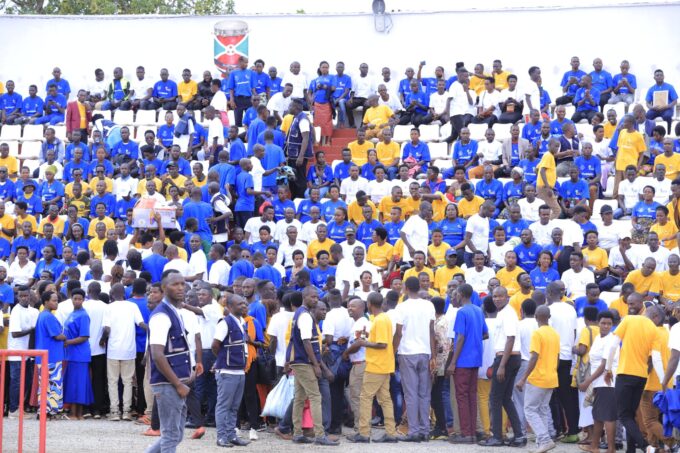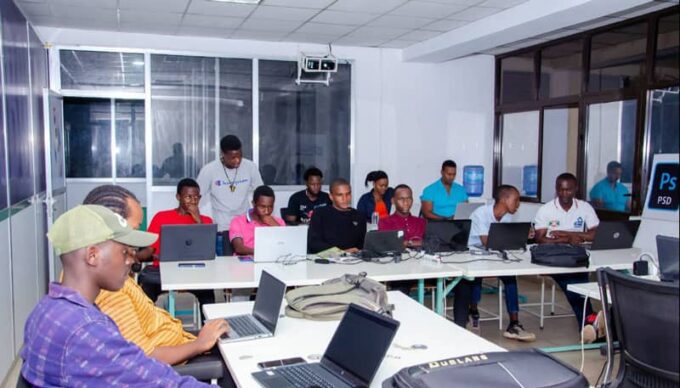As the country grapples with slow internet speeds and unreliable telecommunications services, the Burundian Consumer Association (ABUCO) has strongly criticized local telecom companies for failing to provide adequate connectivity despite consumers paying for these services.
Speaking on local broadcaster Bonesha FM earlier on Tuesday, ABUCO Secretary-General and spokesperson, Noël Nkurunziza, has condemned the inefficiency of telecommunications providers, saying that the inability to communicate seamlessly hinders both citizens’ economic activities and the country’s overall economic development.
“ABUCO has been monitoring the challenges faced by consumers in exchanging information through mobile phones. These include difficulties in making calls, sending instant messages, and ensuring messages reach recipients on time. In some cases, calls do not go through despite users having paid for services,” Nkurunziza said.
He urged the public telecommunications regulatory body to intervene and address the growing consumer complaints. “We ask the authorities, especially the public agency responsible for telecommunications, to act so that consumers can make calls and exchange information without difficulty,” he added. Nkurunziza emphasized that poor telecommunications services have far-reaching consequences on various sectors, including national economic growth, healthcare, and social interactions.
Responding to the growing dissatisfaction, Burundian Minister in charge of telecommunications, Léocadie Ndacayisaba, has reassured the public that efforts are underway to resolve these connectivity issues. She acknowledged the existing challenges but affirmed that telecom companies are obliged to meet service quality expectations.
“We want to assure the population that solutions are being implemented. During meetings with operators, they have committed to improving service quality despite current difficulties,” Ndacayisaba said.
She cited multiple factors affecting internet speeds and service reliability, including fuel shortages, inconsistent electricity supply, outdated telecommunications infrastructure, and limited bandwidth capacity. “These elements have led to service disruptions in several areas, but all necessary measures are being taken to address the problem as soon as possible,” she added.
In January, a high-level meeting in Burundi’s economic capital Bujumbura, led by Minister of Interior, Community Development, and Public Security, Martin Niteretse, alongside Ndacayisaba and other government officials, focused on Burundi’s deteriorating telecommunications sector. The country’s major telecom providers—Econet, Lumitel, and ONAMOB—expressed frustration over lack of foreign currency and fuel shortages, citing them as a primary obstacle to service delivery.
However, Niteretse dismissed this justification, stating: “Fuel shortages have not always been an issue throughout your years of operation in Burundi. Yet, consumers continue to experience poor service. If fuel is truly the problem, why is it not explicitly mentioned in the contracts you signed with the government?”
The meeting underscored long-standing complaints about slow internet speeds and frequent network failures. Recent government reports indicate that over 60% of Burundians struggle to make basic phone calls, let alone access reliable internet services.
Amid mounting concerns, civil society organizations have also voiced strong criticism of Burundi’s telecommunications shortcomings. As the world marked Safer Internet Day earlier in February, Faustin Ndikumana, chairman of the Burundian civil society group PARCEM, warned that poor internet connectivity is stifling job creation and hindering economic progress.
“For a country to achieve any meaningful economic takeoff, a robust internet infrastructure is essential. It facilitates communication, access to information, education, and efficiency in various sectors such as healthcare, administration, security, and banking,” Ndikumana stated.
He also said that Burundi lags behind its regional neighbors in digital connectivity, calling on the government to mobilize funds to improve internet infrastructure and bandwidth. He further urged authorities to conduct regular evaluations of the nation’s Information and Communication Technologies (ICT) strategy to ensure consistent progress








Leave a comment